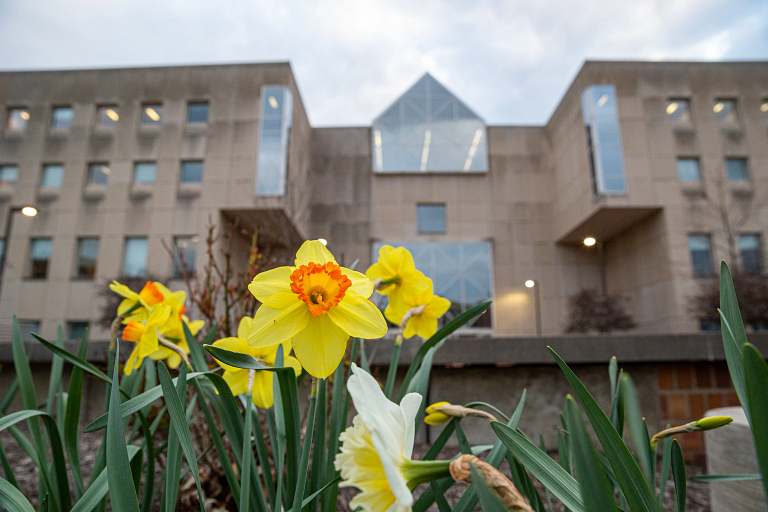
At the start of IUPUI’s spring break, professor Jason Kelly was putting together some components to the Frankenstein Atlas project for his graduate course in digital public history.
Then America started to turn upside down with five letters and two numbers, and “public history” all of a sudden meant something very different. He emailed his students and asked if they wanted to put aside the scheduled two months of coursework to pursue an oral history of COVID-19.
“We are living in a unique moment in history, so we felt a sense of obligation to take action,” said Emily Leiserson, a first-year Ph.D. student in American studies in the School of Liberal Arts, of what was a unanimous class vote.
Their classwork – their mission – is now the COVID-19 oral history project, housed at the IUPUI Arts and Humanities Institute. It is a rapid-response oral history focused on archiving the experience of the pandemic as it unfolds in real time.
“We already see the tensions that have been put on our health system, our social support systems, our economic systems,” said Kelly, the director of the Arts and Humanities Institute. “The oral history project will examine these to better understand the diverse set of experiences of people around the country.”
His students have divided into two-person teams, with each required to do four oral histories representing a range of voices and perspectives.
Acknowledging the social-distancing requirements that have become part of COVID-19 life, interviews will be conducted remotely and with simple, accessible technology such as the voice memo function on an iPhone.
“It’s important to me to speak with a diverse group of people in race, gender, age, sexual orientation and geography,” Leiserson said. “We’re reaching out to clergy members; families with elementary school children; restaurant owners; and people who work in health care, mental health, housing and food pantries. I would also be interested in talking to workers in unemployment offices and factories.”
With so many of those voices and experiences housed in one archive, it becomes a resource to help policymakers and communities interpret and respond to current and future pandemics. And interest in such projects is widespread in the academic community, from the University Archives at IU Libraries to the Indiana Historical Society and universities nationwide.
“When we were putting this together, we wondered how willing people would be,” Kelly said. “We’ve been thrilled to hear how many scholars are interested, and we’re also looking to team up with other universities that are running their own collective efforts.”
Researchers may learn more about participating and members of the public can upload their own story on the oral history’s online site.

